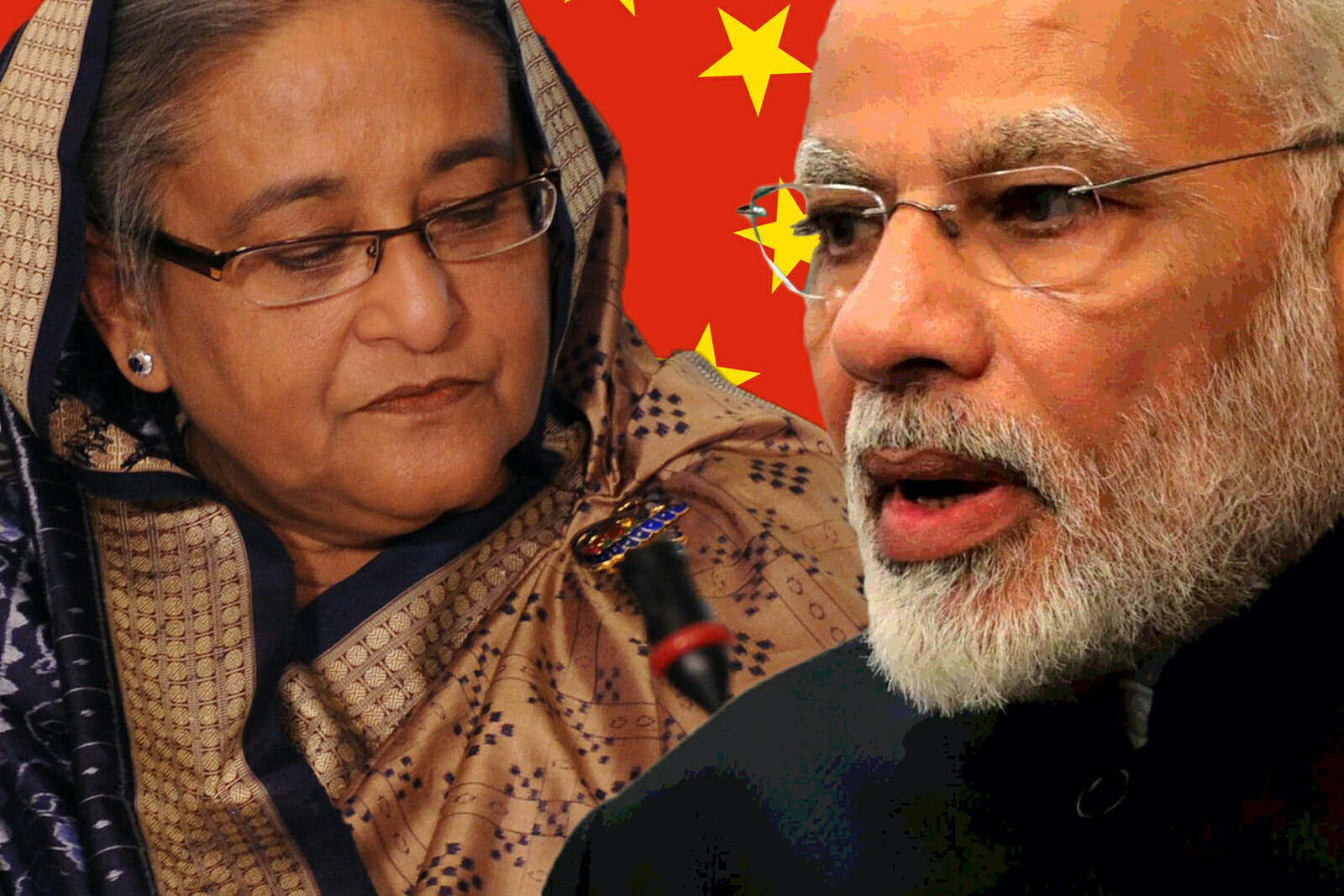
India-Bangladesh Relations: The China Factor
Long before the June 15th clash between Chinese and Indian forces in Eastern Ladakh, China’s expanding footprint in South Asia has generated a growing sense of alarm in New Delhi. China’s debt-trap diplomacy in Sri Lanka, its close relationship with Pakistan, and deepening ties with Nepal underscore the extent to which China has leveraged its Belt and Road vision to cultivate new relationships across the region. But, what about India’s only regional all-weather ally, Bangladesh?
Recent disputes between Dhaka and New Delhi do not bode well for the future of this relationship. Under the nationalist leadership of Indian Prime Minister Narendra Modi, the two neighbors have been drifting apart. New Delhi’s adoption of anti-Muslim policies, a hardening of India’s grip on Kashmir, and other simmering bilateral disputes has led a growing number of analysts to conclude that Bangladesh will increasingly cultivate warm relations with India’s strategic rival, China. Many Bangladeshis are now asking whether Bangladesh will turn closer to Beijing, or seek to smooth over its turbulent relationship with India in the face of China’s growing presence in South Asia.
Dhaka’s Domestic Politics-Foreign Policy Nexus
Perhaps no other issue has inflamed anti-Indian sentiment in Bangladesh in recent years as much as the treatment of Muslim communities in India at the hands of Modi’s nationalist government. Human rights violations in Kashmir that followed the revocation of Kashmir’s autonomy, and the adoption of the controversial Citizenship Amendment Act (CAA) and the National Register of Citizens (NRC) stirred outrage among many Bangladeshis. Recently concluded agreements aiming to improve maritime cooperation and connectivity between the two countries appeared to be one-sided in India’s favor. In this period of heightened tensions, a university student who posted criticism of the Modi-Hasina agreements was murdered by members of the student wing of Bangladesh’s ruling party, the Awami League. In light of these developments, without a change of course by New Delhi, further moves by Dhaka to keep Bangladesh within India’s strategic orbit will only further bolster growing anti-Indian sentiment at home.
Dhaka’s ruling Awami League has sought to smooth over many of these developments. In the days following Modi’s adoption of the controversial CAA and the NRC in 2019, which generated international outrage across the Muslim world, Bangladeshi policymakers remained silent and largely dismissed these developments as an internal matter of India. Bangladesh’s Foreign Minister, A.K. Abdul Momen, only stated that Dhaka had faith in New Delhi’s promise that the new citizenship legislation will not affect Bangladesh. A planned trip in March 2020 by Modi to Bangladesh was also canceled in the face of protests, ostensibly out of coronavirus fears.
While India continues to pursue policies that enflame anti-Indian sentiment in Bangladesh, China has sought to capitalize on Dhaka’s delicate diplomatic balancing of domestic politics and maintaining its relationship with New Delhi. China has flooded Bangladesh with foreign direct investment, lucrative infrastructure development projects, and has granted tariff-free access to the Chinese market for 97 percent of Bangladeshi products. According to the 2019 UN World Investment Report, Bangladesh recorded its highest ever FDI inflow in 2018. One-third of the total FDI of $3.61 billion was from China alone.
Furthermore, in 2016, Bangladesh purchased two submarines from China for $205 million. Indian intelligence also reported that Poly Technologies Inc., a Chinese state-owned company, has been assigned to build a submarine base, which will cost around $1.2 billion. Faruk Khan, a Bangladeshi member of parliament, acknowledged this development but stressed that the project will be financed by Bangladesh. Nevertheless, China’s involvement in building Bangladesh’s first submarine base has raised eyebrows in India and has led to questions of whether Bangladesh will follow in the footsteps of other South Asian neighbors to join China’s orbit in South Asia.
Recalibrating a New Bangladesh-India Relationship
Bangladesh is one of the fastest-growing economies in the world. Bangladesh’s GDP growth is now higher than both Pakistan and India. Bangladesh’s rapid economic growth and strategic maritime location on the Bay of Bengal means that Bangladesh is no longer the country which former U.S. Secretary of State Henry Kissinger dismissed as a “basket case.” Bangladesh is now an attractive destination for investors from China, Japan, and India, and China’s economic deals with Dhaka should be viewed in this context.
Bangladesh remains one of the top export destinations for India. Dhaka remains a historic strategic ally that could play a critical role alongside India in countering China’s presence in the Indian Ocean. Meanwhile, China is also a top exporter of defense equipment to Bangladesh. China’s BRI project has also fueled Chinese investment in Bangladeshi infrastructure developments. After Xi Jinping’s visit in 2016, Bangladesh has seen an additional increase in Chinese investment and loan offers. But this sudden interest of China in Bangladesh has also generated growing unease. Unlike the Bangladesh-India relationship, there are no strong bonds between Bangladesh and China. Furthermore, China’s debt-trap diplomacy in Sri Lanka highlights the risks of moving too close to Beijing.
Despite New Delhi’s recent diplomatic disregard for its smaller neighbor, it is unlikely that Bangladesh will openly break with India. While this decades-old alignment with India will not be threatened by China’s recent moves in Bangladesh, the Modi government should more carefully consider how its own domestic policies like CAA and NRC act to drive a wedge in the India-Bangladesh relationship- a relationship that can be exploited by Beijing. It should raise alarm in New Delhi that after the June 2020 border clash between India and China, all of India’s South Asian neighbors, including Bangladesh, remained silent and did not condemn China.
The road ahead in Bangladesh-India relations will remain turbulent. The cancellation of official state visits by several Bangladeshi officials to India, the unwillingness of Bangladeshi Prime Minister to meet India’s High Commissioner to Bangladesh, and Pakistani Prime Minister Imran Khan’s rare phone call to Bangladesh’s Prime Minister Sheikh Hasina, highlight the challenges faced by New Delhi to rebuild bridges with Bangladesh. However, if these bridges are rebuilt, Bangladesh could play a critical role in helping shape India’s strategic environment.
